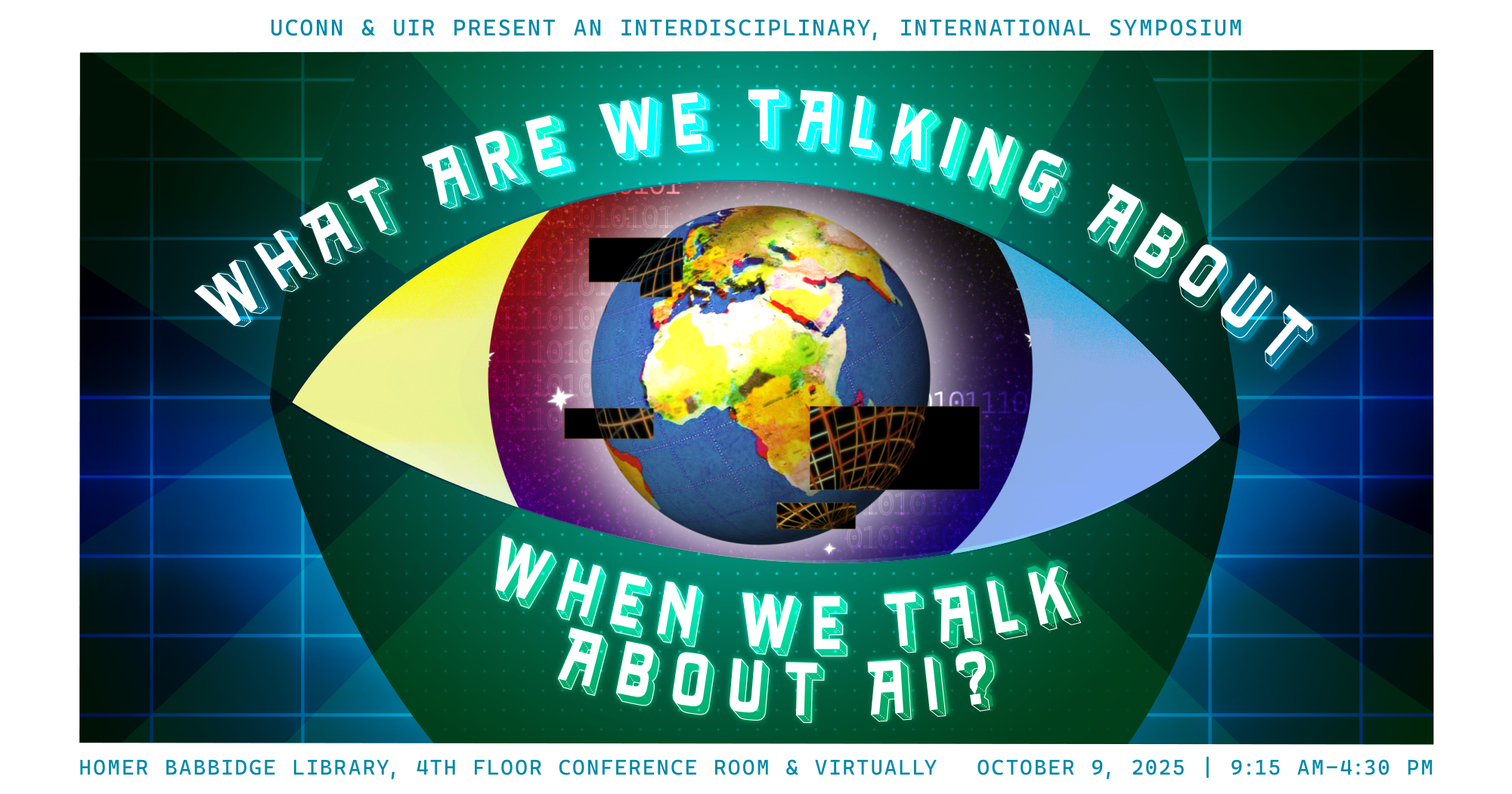
Will AI Replace Us?
A Panel on AI and the Future of Work
Wednesday, February 4, 2026, 12:30–1:30pm, Konover Auditorium
The event will also be livestreamed.
It’s a question shared by students, staff and faculty: How will Artificial Intelligence shape our workplaces?
Join us for a conversation with experts who are shaping AI policy, practice, and regulation: Ted Laskaris, Interim Chief Information Officer, UConn; CT State Senator James Maroney; and Sachin S. Pandya, Roger Sherman Professor of Law, UConn. Our panelists will share their expertise and field questions from UConn staff, faculty, and students to explore practical questions about workplace transformation, protection, and possibility in the age of AI.
Together, we’ll consider how we can move beyond speculation to understand what AI actually means for the work we do—and the relationships that make that work meaningful.
Please join us—all are welcome! If your class schedule aligns with this event, please feel free to bring your class! Just send a quick email to let us know how many students to expect to uchi@uconn.edu.
This is event is co-sponsored by UCPEA.
Access note
If you require accommodation to attend this event, please contact us at uchi@uconn.edu or by phone (860) 486-9057. We can request ASL interpretation, computer-assisted real time transcription, and other accommodations offered by the Center for Students with Disabilities. Requests should be made at least five business days in advance whenever possible


